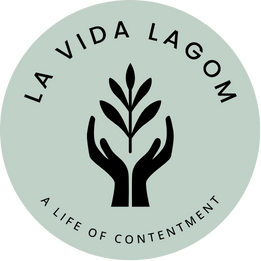
Intellectual wellbeing encourages us to engage in creative and stimulating mental activities to expand knowledge and skills, whilst developing the potential to share our abilities with others in our communities.
Intellectual wellness can be developed through academics, cultural involvement, community involvement and personal hobbies.
Lagom can be applied to our intellectual wellbeing as lagom encourages curiosity and experimentation – there is no universal definition of what is “just right” – this is unique to each person and therefore requires us to apply curiosity and learning through trial and error to find our personal definition of just the right amount.
The capacity to learn can be improved by:
- analysing how you do things
- being willing to try new things
- recognising what works best for you
Being aware of how you like to learn and what type of learning materials / experiences you best engage with will help you make better decisions about how you consume knowledge and learn skills.
“If you are not willing to learn no one can help you. If you are determined to learn, no one can stop you”
Zig Ziglar
Here are some example activities to achieve or maintain your intellectual wellbeing:
- Take a course – there are numerous free and low-cost courses available on a multitude of topics which can be completed from home at your own pace – many of which just require a laptop and internet. Why not take a look and see if there are any courses relating to your hobbies or interests – some of the platforms we have used for course content are Reed, Ofcourse Udemy & Coursera
- Enrol in formal education – if you are wanting to learn something more substantial – maybe to set you up for a new or different career – why not invest in attending a college or university course. Many courses can be studies part time, as an evening student or online
- Read – we have access to an extensive amount of written material such as books, newspaper articles and essays that can be accessed and read by anyone – much via the internet and from shops; but why not visit your community library to see what they have on offer – not only can you access knowledge for free but you might find an opportunity to maintain your intellectual and social wellbeing through activities such as reading groups
- Attend seminars or workshops – this could be in person or online – seminars and workshops often provide new ideas that you might not find in a book and provide an opportunity to ask questions and gain a deeper knowledge of a topic – it could also be an opportunity to improve your social wellbeing by meeting people that share a common interest
- Listen to podcasts, audio books or radio programs – there are thousands of podcasts on as many different topics which can be accessed for free through mobile device apps or streamed over the internet. Audio books are a great alternative to physical books (especially for those with vision issues), generally cost less and means that you don’t have to physically store the book in your home. The great thing about podcasts, audio books and the radio is that you can combine these listening activities with other wellbeing activities such as physical exercise, de-cluttering or doing something creative – or you could simply sit back, relax and clear your mind of the day
- Watch TV programs and videos – we have so much choice and accessibility to TV shows and videos – be it the old fashioned television set or streamed online through on demand digital content platforms – some might argue too much choice – but access to knowledge via this media channel has never been easier
- Be creative – there is something very rewarding about challenging yourself to make something – even more so if what you create is something that can be used or gifted to others. If you don’t think you are creative why not try something like an adult colouring book – a fantastic way to engage the mind in a different way, choosing the colours and not thinking about anything else for a while. You don’t know where that might lead you, you could be the next Tracy Emin or Michael Angelo…or just a happy individual colouring in once or twice a week! If you already enjoy creative activities why not try to create something new or different – cook a new recipe, try a new DIY skill, knit or crochet a different pattern or paint a different scene – the list is endless
When we maintain our intellectual wellbeing, we:
- Discover new things – you may not know you enjoy something until you give it a go
- Learn new skills – you can apply your skills to improve aspects of your own life or share these skills with others
- Improve critical thinking – you can analyse situations at a higher degree
- Challenge and develop your brain – you can benefit your physical wellbeing and take measures to ensure your mind is well maintained as you grow older
- Think clearer – you can make more conscious decisions using the knowledge you have developed
- Boost self-confidence – you gain a feeling of achievement when you have learnt something new, applied a new skill or created something
- Builds a sense of purpose – you can see the purpose with whatever learning you acquire
- Improve happiness – doing something creative contributes to increased happiness
Here are our suggestions for maintaining your intellectual wellbeing using the principles of lagom:
1. Be selective with what you consume
Consider your emotional wellbeing when selecting how much, when and how you consume knowledge – select trustworthy sources of information and don’t get drawn into ‘fake news’ and emotional manipulation that some news and social media platforms portray for their own means.
2. Growth mindset
Don’t take things that didn’t go to plan in the past as failings – instead take the opportunity to reflect on what you’ve learnt and how you can do things differently next time – then apply that learning and have another go.
3. Life-long learning
You are never too old to learn something new – keeping our minds engaged will help us continue to be an active contributor to society as we age.
4. Share your knowledge
Don’t just learn for yourself, but do something for the greater good and share that knowledge or skills with others. At work – why not mentor a junior colleague or give talks and presentations to your team? At home – why not teach your children how to cook or fix things around the home? You could even start a blog and share your knowledge with others who have similar interests
Want to know more about living lagom? Take a look at our wellbeing pages and blog or feel free to reach out via our contact page.
